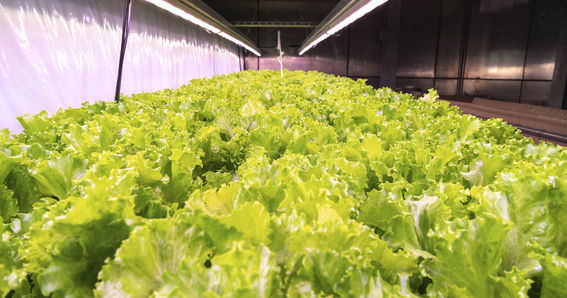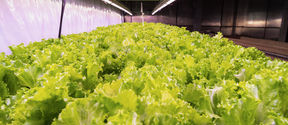Delivering the practical solutions needed to adapt to climate impacts – Bio-based materials could move us beyond plastic
In this series of blog posts, Aalto experts share their views on the climate crisis ahead of the UN's COP26 climate summit held in November 2021.

Synthetic materials like plastic and nylon transformed the world last century, but many of them have become this century’s environmental woes. While recycling helps, better solutions are becoming available with new bio-based materials, using what would be waste to replace single-use plastics, unsustainable textiles, and chemical fertilisers.
‘Our material world needs to change radically, and new bio-based material sources, efficient material recycling systems and emerging biotechnologies offer solutions for the transformation,’ says Pirjo Kääriäinen, a professor at Aalto University who has been integrating design with material science for over a decade. ‘There are no simple solutions to the complicated material-related problems, but as plenty of research is going on, I am confident that we’ll see a broad array of feasible solutions in coming years.’
By processing lignin, cellulose, and other plant matter into new bio-materials, research from Aalto University is opening paths to sustainable alternatives that could replace synthetic materials, reducing resource use and cutting back on waste.
Two new materials show great promise for replacing single-use plastic in packaging. The bubble wrap and plastic used in packaging materials could be swapped for FoamWood, a light, durable, and flexible wood-based foam. Plastic used to wrap cucumbers and other vegetables could be replaced by DipWrap, an experimental biobased liquid created by students that rapidly dries into a transparent film which can be safely washed off.
Flower Matter is an approach that processes waste flowers into bio-based materials that can be used in place of paper, leather, or packing foam, with petals from the waste flowers processed to give these materials natural, vibrant colours. Roughly 40% of commercial flowers discarded before they reach consumers, with much of that waste ending up in landfills; Flower Matter could transform that waste into alternative textiles and other materials.
Waste material can also be the source for an alternative to another revolutionary synthetic: fertilisers. The eco-friendly recycled fertiliser known as Putretti, made from locally composted garbage and wood ash, has a carbon footprint 88% smaller than synthetic fertilisers and takes fewer resources and less energy to produce. Putretti has performed well in experiments with seedlings, and a longer-term trial with older trees is in the works. Replacing chemical fertilisers with Putretti will make it possible to fertilize forests sustainably, reducing inputs while boosting the amount of carbon trapped as wood.
Aalto University experts available to comment on the following topics:
Bio-based solutions
Pirjo Kääriäinen is a professor of design and has been orchestrating interdisciplinary collaborations between design and material research for a decade. She has worked with researchers and students to explore bio-based materials for a sustainable future. Building on her earlier experience in the textile industry, she was part of a team that developed methods to transform wood pulp, old textiles, and even newspapers into high-quality textile fibres that could be used to make fabric.
pirjo.kaariainen@aalto.fi
Phone: +358503810217
Eco-friendly fertiliser
Olli Dahl is a professor of environmental technology with process industry at Aalto University as well as an environmental counsellor to Finland’s Supreme Administrative Court. His research group develops sustainable processes for the treatment and wastewater and industrial residues. In addition to developing Putretti©, his team developed AaltoCell™, a versatile technique which can be used, among other things, to capture nutrients from industrial food waste streams and transform it into animal feed.
olli.dahl@aalto.fi
Phone: +358405401070
Accelerating the global energy transition: Clean energy demands socially just policies | Aalto Blogs
Policy, technology, and practice must be aligned to accomplish the shift to clean energy, say Aalto's experts.
Visit
Advancing climate actions in the places we live: Designing cities to store carbon | Aalto Blogs
Simple changes in urban planning can reduce carbon emissions and increase carbon storage, offering tools to help meet emissions targets.
Visit
We could feed ten billion people – research offers paths past the climate crisis | Aalto Blogs
Carbon emissions often dominate discussions about our environment, but feeding our growing population creates broader environmental problems
Visit
Show other posts from this blog

Why can’t companies and governments meet sustainability goals – and what can be done?
Antiquated business models and ambiguous policies hinder efforts towards sustainable development.
Advancing climate actions in the places we live: Designing cities to store carbon
Simple changes in urban planning can reduce carbon emissions and increase carbon storage, offering tools to help meet emissions targets.
We could feed ten billion people – research offers paths past the climate crisis
Carbon emissions often dominate discussions about our environment, but feeding our growing population creates broader environmental problems